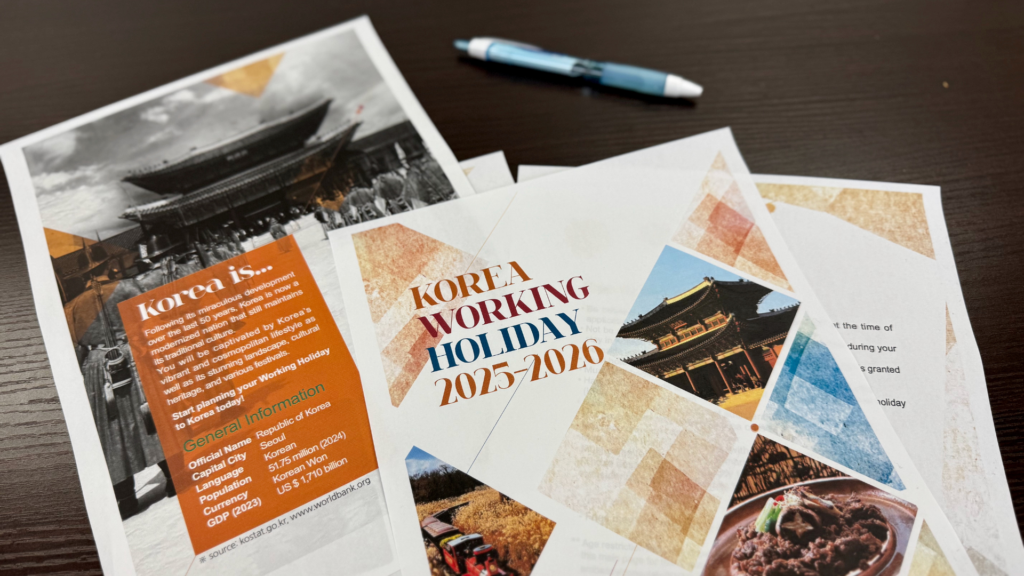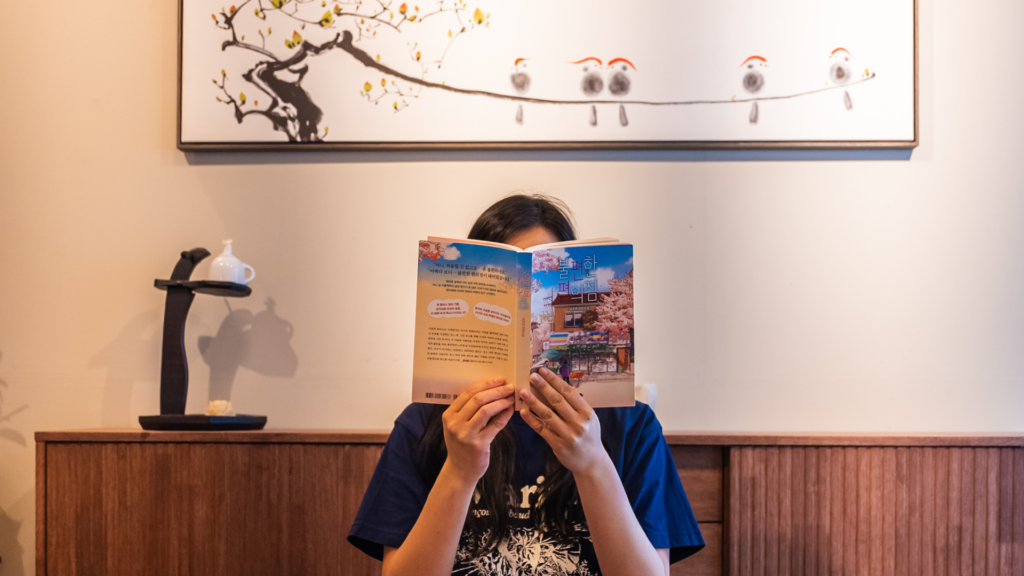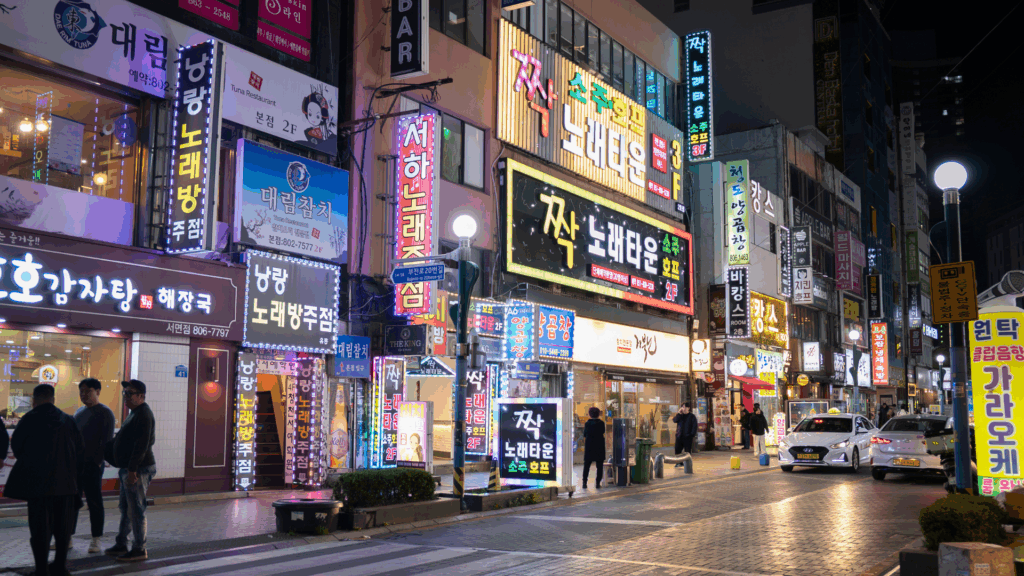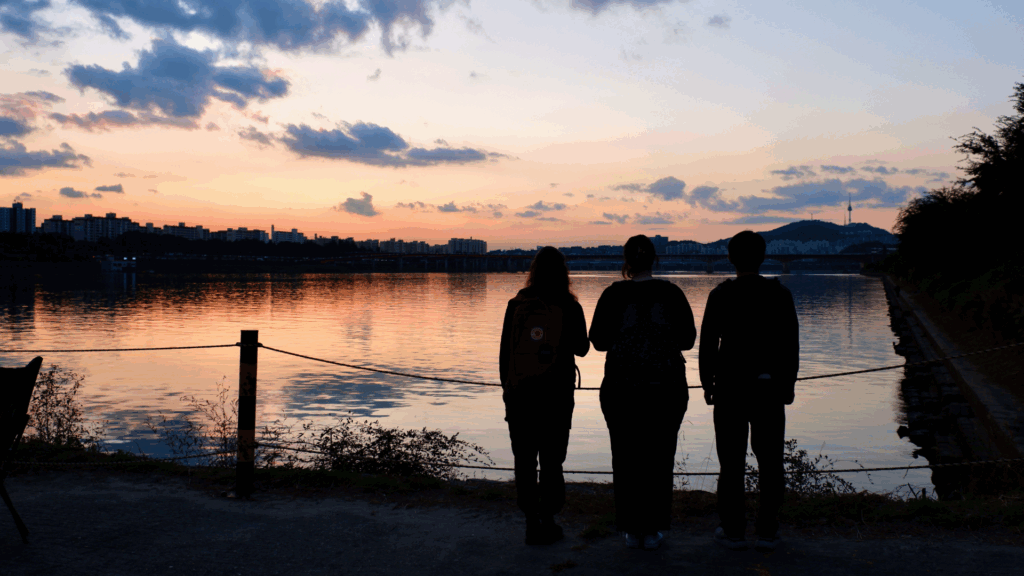The H-1 visa for Korea, or Working holiday visa, is a special visa that allows young individuals from certain countries to stay in South Korea for up to one year while working, studying, and traveling. Unlike student visas, the H-1 visa provides more flexibility, allowing to combine work with short-term study programs such as Korean language courses. Read more about the H-1 visa for Korea.
What’s the H-1 visa for Korea
The H-1 visa for Korea is designed for cultural exchange, giving holders the opportunity to experience life abroad while supporting themselves financially through part-time work. You can work up to 25 hours per week, and you can apply for a job after arriving in South Korea. Keep reading for further information.
Jobs allowed and restricted for working holiday visa holders in Korea
While in Korea, H-1 visa holders can engage in part-time employment to support their stay. It’s a fantastic way to fund your travels and gain experience simultaneously. Just be sure to follow the visa rules to avoid legal issues. Also, there are restrictions on certain types of work—see details below.
Allowed Jobs:
- Hospitality (cafés, restaurants, guesthouses, hotels)
- Retail (convenience stores, shopping malls, markets)
- English tutoring (informal or freelance)
- Office work (limited to certain companies, usually with flexible contracts)
- Volunteering jobs
Restricted Jobs:
- Professional fields such as law, medicine, engineering, and finance
- Teaching (including foreign languages)
- Jobs related to adult entertainment (bars, nightclubs, massage parlors)
- Entertainment business professions such as dancers, musicians, acrobats etc.
- Any work deemed illegal or inappropriate under Korean labor laws
Even though salaries vary depending on many factors such as skills, education, and type of employment, the minimum wage in South Korea is 10,300 won per hour (as of March 2025).
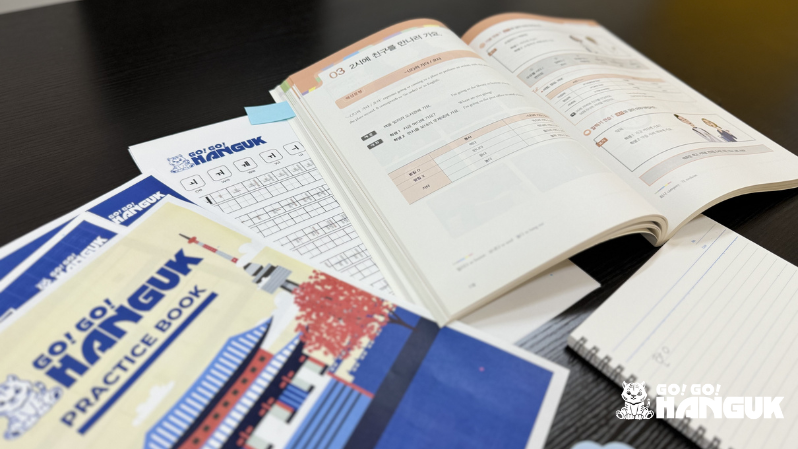
Why learning Korean is essential for your working holiday experience
Studying Korean during your working holiday visa period is one of the best investments you can make. Employers in Korea prefer workers who can communicate in Korean, even for part-time jobs. Additionally, being proficient in Korean helps with everyday tasks, travel, and building meaningful relationships with locals. Enrolling in a Korean language program not only enhances your job prospects but also enriches your overall experience in Korea.
If you want to start on the right track, we recommend our Korean online courses. We have created Korean online courses to help students acquire the Korean language necessary for daily life in South Korea, with interactive classes taught by experienced instructors. Click here to find out more!
What Korean language programs can you apply for with an H-1 visa for Korea?
Under an H-1 visa for Korea, individuals are permitted to enroll in Korean language courses, such as language schools or universities. However, enrollment in regular university degree programs is not allowed under this visa; those aiming for degree courses should consider applying for a D-2 student visa.
It’s important to note that the allowed duration for Korean language studies may vary depending on the specific agreements between Korea and the visa holder’s home country. This means that, if your H-1 visa for Korea is valid for 12 months, you can live in Korea and study for 12 months, because you cannot extend or convert the H-1 visa.
Therefore, it is advisable to consult the relevant consulates to understand the specific limitations and opportunities for educational activities under the H-1 visa for Korea.
Study Korean at university vs private language schools
When considering studying Korean in Korea, two main options are Korean language programs offered by university and by private language schools.
University language programs typically offer structured curricula with fixed start dates four times a year (March, June, September, December), each term lasting about 10 weeks. On a Working holiday visa you can study Korean at a university for up to 1 year. These programs often provide a comprehensive academic environment, allowing students to immerse themselves in university life. However, they may have larger class sizes and less flexible scheduling. Learn more in this article about how Korean language courses work at the university.
On the other hand, private language schools offer more flexible start dates, often allowing students to begin courses at any time and extend their studies while in Korea. These courses usually feature smaller class sizes, providing personalized attention and a more relaxed learning atmosphere. They often focus on practical language skills and may offer additional extracurricular activities. However, tuition fees at private institutions can be higher, and they may not provide the same level of cultural immersion as university programs.
Remember that if your plan is to focus mostly on studying, we recommend applying for a D-4 student visa instead. The D-4 visa is for those looking to study full-time in Korea, including at language schools or other educational programs. It also allows part-time work (up to 20 hours per week). This visa is ideal for those who want to dedicate more time to their education, with fewer restrictions compared to the H-1 visa.
Find more information about Korean language courses on this page and read this article to learn the differences between D-4 visa and H-1 visa for Korea.
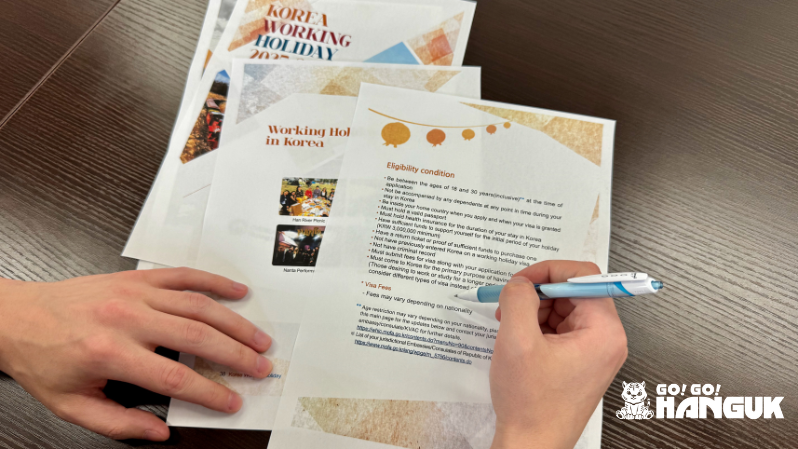
H-1 visa application process
The application process for the H-1 visa for Korea is handled by the local South Korean Embassy or Consulate. Applicants must meet the following requirements and eligibility conditions:
- You must not have previously participated in the Working Holiday Program. The H-1 visa is a one time opportunity.
- Be between the ages of 18 and 30 years at the time of the application.
- Have no criminal record.
- You may not apply for the working holiday visa in Korea. The application and visa process must be made at the Consulate of the Embassy of the Republic of Korea in your country of citizenship.
- Have adequate health insurance for the duration of his/her stay in Korea.
- You may not extend the H-1 visa after the 12-months validity period.
- You must enter Korea within 3 months from visa issuance. From the date of arrival, your working holiday visa will be valid for 12 months.
- You have to apply for a Korean Residence Card within 90 days upon your arrival. Read more about the Korean Residence Card here.
Documents required to apply for the H-1 visa for Korea
Applying for the H-1 visa for Korea is an exciting step toward your adventure! While requirements may vary, here’s a helpful list of the common documents you’ll need to submit for your application.
- Visa application form
- Valid passport
- Financial documents (usually around 3,000,000 won minimum)
- Health insurance covering the entire stay in Korea (coverage: 40,000,000 won minimum)
- A detailed travel plan for your stay, including accommodation and planned activities
- Criminal record documents
- Medical certificate
- Proof of student status or academic qualifications
Please note that application procedures and required documents may vary slightly depending on nationality or respective Korean Embassies and Consulates. It is best to check with your local Korean Embassy for the latest updates.
Start your journey with Go! Go! Hanguk
If you are planning to apply for an H-1 visa for Korea, make the most of your stay by enrolling in a Korean language course. Go! Go! Hanguk specializes in helping international students find the best language programs while guiding them through the visa application process, booking an accommodation, and settling down in Korea. Contact us for more information about Korean language courses.
Check out this page for further information about the H-1 visa or reach out to your local Korean embassy for the visa application procedure.
